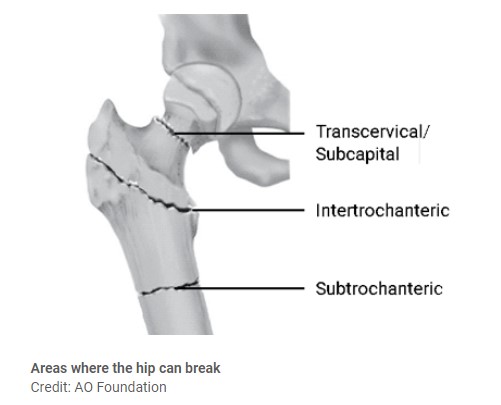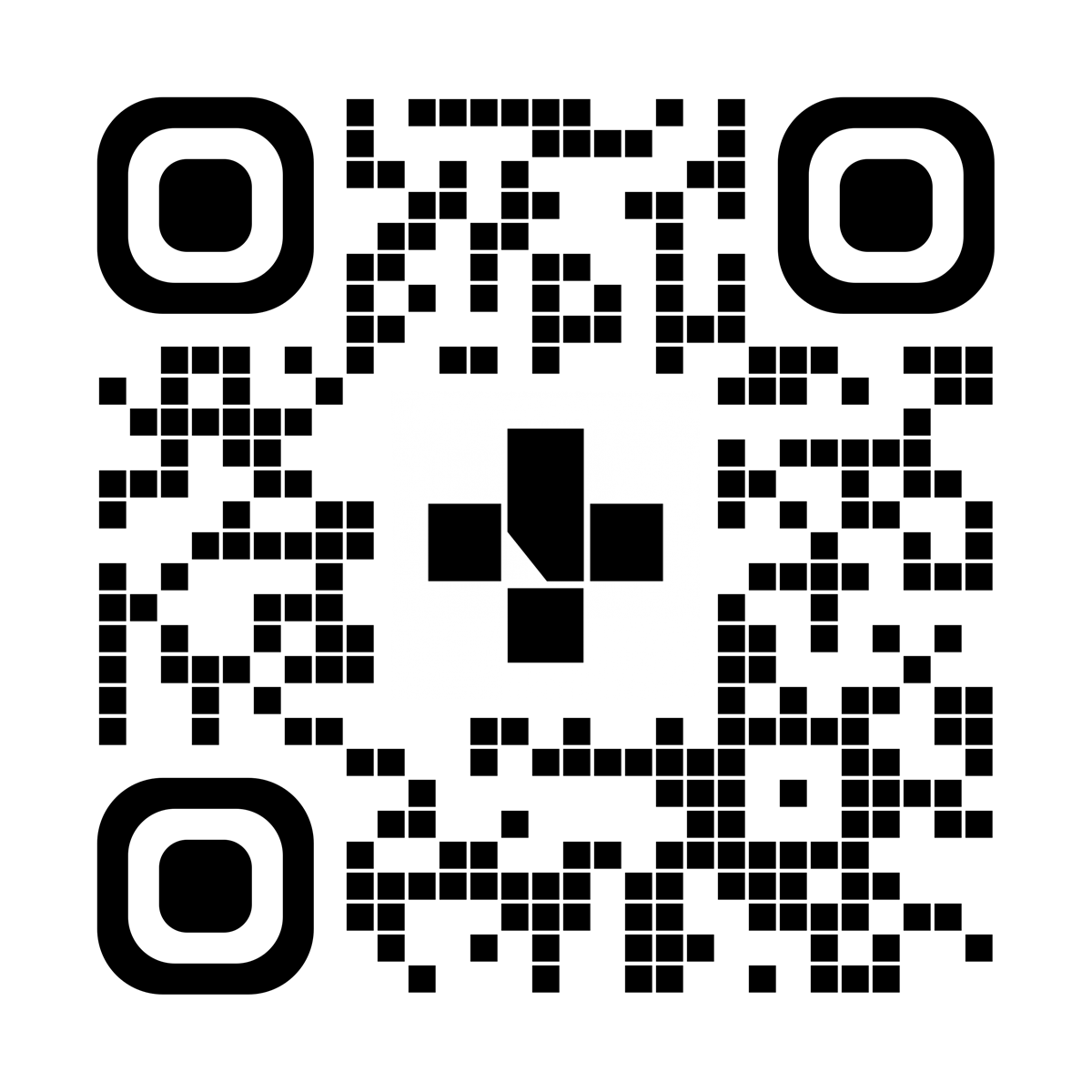Surgery to Repair a Hip Fracture
What to expect at home

Going home
Your healthcare team will support and help you as you recover. In some cases, you may go to another facility before you’re ready to go home.
Before you leave the hospital, your healthcare team will meet with you regularly to see how well you’re able to do everyday activities, like walking with an aid and getting on and off of the toilet. They’ll keep working with you to help you move better and do more things on your own.
The sooner you can do everyday activities on your own, the sooner you’ll go home.
Using walking aids
During your recovery, your healthcare team will show you how to walk properly with a walking aid. Let your healthcare team know if you’re worried about falling while you’re learning to walk and move around again.
Use a walking aid at all times to protect your hip. Your healthcare team will let you know which walking aid is right for you. Use your walking aid until your healthcare team says you don’t need it anymore. Walking aids include walkers, canes, and crutches.
How can you care for yourself at home?
Exercise
At home, you will continue the exercises that you started in the hospital. Closely following the exercise instructions that your healthcare team gave you will help you get your strength and movement back as quickly as possible.
Incision care
Your nurse will talk to you about how to care for your incision (surgical cut) at home.
If you have staples, you will get your staples taken out 10 to 14 days after surgery. Ask your nurse who can take out your staples. Also ask about your follow-up appointment so you know when it is, where to go, and who you’ll see.
Driving
Don’t drive until your doctor says you can. To drive safely, your leg muscles, hip muscles, and reflexes need to be as good as they were before you broke your hip. If you’re in an accident, your insurance may not cover you if it isn’t safe for you to drive.
Sexual activity
It’s best to wait 3 months after your surgery before you have sex (intercourse). This is to protect your hip until it’s fully healed. There are many other types of sexual activity that are safe for you and your partner to try. Let your partner take the more active role.
Medicine
Learn about the medicines you take. Know what your medicines are for, when to take them, and how to take them. If you need to take your medicine to prevent blood clots by a needle, your nurse will make sure that you, your support person, or your family are comfortable giving the needle.
If you have been told to take calcium and vitamin D supplements, you should continue to take these.
Eating well
Poor nutrition (not eating well) and weak muscles can put you at a higher risk of falling. Good nutrition (eating well) along with physical activity helps you build and keep strong muscles. Strong muscles are good for balance. Your body needs protein to build, repair, and keep the muscle tissue you have. Include a good source of protein at every meal, such as:
- meat, fish, or poultry
- tofu, eggs, or cheese
- nuts and nut butters
- cooked dry beans, peas, or lentils
Also include plenty of fruits and vegetables in your diet. If you’re unable to eat your usual amounts of food, eat small amounts more often. For example, eat 6 small meals a day instead of 3 large meals.
To prevent constipation:
- drink enough fluid to keep your urine light yellow
- eat foods high in fibre, like whole vegetables and fruit, whole grains, beans, and lentils
Your healthcare team will let you know if you need to keep taking a nutritional supplement drink.
Medical equipment
Use the medical equipment that your therapy team recommends. If you use a walker, don’t lift or carry anything while you use it.
If you need medical equipment for longer than 6 months, talk to your healthcare provider. They can let you know if you’re able to get the equipment through the Alberta Aids to Daily Living (AADL) program (alberta.ca/aadl-contact). Contact AADL by phone at 780-427-0731. In Alberta, you can reach this number toll-free by first dialing 310-0000 before the phone number.
Dentist and other appointments
The next time you see a doctor or dentist, tell them that you had surgery to repair a broken hip. You may need to take antibiotics before you have a medical or dental procedure.
Preventing falls
Follow these tips to prevent falls:
- Arrange furniture so that you won't trip on it.
- Get rid of throw rugs and move electrical cords out of the way.
- Make sure that areas where you will be walking are well lit.
- Put grab bars in showers and bathtubs.
- Avoid icy or snowy sidewalks.
- Wear shoes with sturdy, flat soles.
Getting more support at home
If you need more support while at home:
- Call Home Care Services in your area.
- Call Health Link at 811.
- Talk to your healthcare provider about how to arrange for an occupational therapist to come to your home. An occupational therapist can suggest changes to help make your home safer.
- Call Alberta Supports (alberta.ca/alberta-supports) toll-free at 1-877-644-9992 to get a copy of the Seniors Information Guide. This guide lists programs to help adults live safely on their own. Alberta Supports can also help if you can’t afford to make changes to your home or buy the medical equipment you need.
Follow-up care is a key part of your treatment and safety. Be sure to make and go to all appointments, and call your doctor or nurse advice line (811 in most provinces and territories) if you are having problems. It's also a good idea to know your test results and keep a list of the medicines you take.
When should you call for help?
Call 911 anytime you think you may need emergency care. For example, call if:
- You passed out (lost consciousness).
- You have severe trouble breathing.
- You have sudden chest pain and shortness of breath, or you cough up blood.
Call your doctor or nurse advice line (811 in most provinces and territories) now or seek immediate medical care if:
- Your leg or foot is cool, pale, or changes colour.
- You cannot feel or move your leg.
- You have signs of a blood clot, such as:
- Pain in your calf, back of the knee, thigh, or groin.
- Redness and swelling in your leg or groin.
- Your incision comes open and begins to bleed, or the bleeding increases.
- You feel like your heart is racing or beating irregularly.
- You have signs of infection, such as:
- Increased pain, swelling, warmth, or redness.
- Red streaks leading from the incision.
- Pus draining from the incision.
- A fever.
Watch closely for any changes in your health, and be sure to contact your doctor or nurse advice line (811 in most provinces and territories) if:
- You do not have a bowel movement after taking a laxative.
- You do not get better as expected.
To see this information online and learn more, visit MyHealth.Alberta.ca/health/pages/conditions.aspx?hwid=custom.ab_hipfracture_surgery_ac_adult.

For 24/7 nurse advice and general health information call Health Link at 811.
Current as of: February 7, 2025
Author: Fracture Liaison Services (FLS) Program, Alberta Health Services
This material is not a substitute for the advice of a qualified health professional. This material is intended for general information only and is provided on an "as is", "where is" basis. Although reasonable efforts were made to confirm the accuracy of the information, Alberta Health Services does not make any representation or warranty, express, implied or statutory, as to the accuracy, reliability, completeness, applicability or fitness for a particular purpose of such information. Alberta Health Services expressly disclaims all liability for the use of these materials, and for any claims, actions, demands or suits arising from such use.
